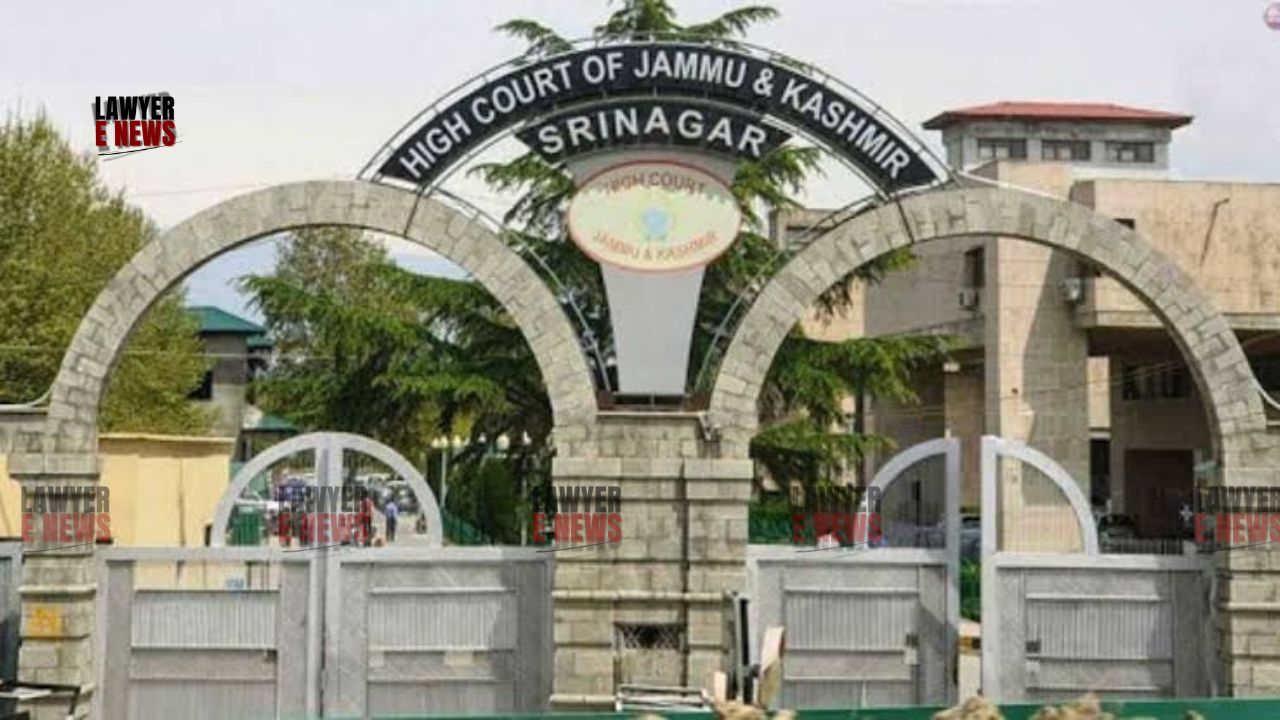-
by Admin
15 February 2026 5:35 AM



High Court of Jammu & Kashmir and Ladakh, in a significant ruling, dismissed an appeal by New India Assurance Co. Ltd., affirming the Motor Accident Claims Tribunal’s award of Rs. 6,24,000 along with 7.5% interest in favor of accident victim Rattan Lal. The insurance company had challenged the award on the sole ground that the driver of the offending vehicle, Tilak Raj, allegedly did not possess a valid driving license at the time of the accident. The Court, however, concluded that the driver had established the validity of his license, and the insurer failed to produce any evidence to disprove it.
The judgment, delivered by Hon’ble Justice Vinod Chatterji Koul, upheld the principle that the burden of disproving a driver’s valid license rests squarely on the insurer if it seeks to deny liability. Dismissing the appeal, the Court emphasized: “Once the driver of the offending vehicle has proved the validity of his driving license, the insurance company cannot avoid liability merely by alleging otherwise without producing conclusive evidence to support its claim.”
The case arose out of a tragic accident on June 28, 2005, involving Bus No. JK02C-6199. Rattan Lal, the claimant, fell from the roof of the bus while tying milk cans after the driver suddenly started the vehicle without waiting for a signal. The accident left the claimant with multiple fractures and permanent disability assessed at 40%. The Motor Accident Claims Tribunal (MACT), Jammu, awarded him Rs. 6,24,000 in compensation, determining his monthly income at Rs. 5,000 and calculating the impact of his disability on his earning capacity.
The Tribunal held that the accident occurred due to the rash and negligent driving of the bus driver. It also found that the driver, Tilak Raj, possessed a valid driving license issued by the DTO Gurdaspur and endorsed by the RTO Rajouri.
New India Assurance Co. Ltd. challenged the Tribunal’s award, arguing that the driver’s license was fake. The insurer attempted to summon witnesses from the DTO Gurdaspur to dispute the license’s validity but failed to produce them. The driver, Tilak Raj, testified before the Tribunal and produced his license, stating that it was issued by DTO Gurdaspur in 1993 and later endorsed for public service vehicles by RTO Rajouri in 1999. His testimony went unchallenged by the insurer.
The insurance company, represented by counsel, had earlier opted to close its evidence at the Tribunal stage without summoning further witnesses. The High Court observed that this procedural decision proved fatal to the insurer’s case. Justice Koul remarked: “The appellant’s failure to produce additional witnesses or evidence, despite initially seeking to summon them, demonstrates that the insurer’s claim regarding the license’s invalidity is without merit.”
In upholding the Tribunal’s findings, the High Court also affirmed the compensation awarded. The claimant’s injuries, which resulted in a 40% permanent disability, were supported by medical evidence and testimony from Dr. Rajesh Gupta, who confirmed that the claimant would face significant difficulties in performing his daily activities and continuing his work as a milk seller. The Court found no irregularities in the Tribunal’s computation of the compensation amount.
The High Court further noted: “The Tribunal’s decision to calculate the claimant’s basic income as Rs. 5,000 per month and assess the impact of his disability on his earning capacity is based on the evidence presented and does not warrant interference.”
The insurance company’s argument centered solely on the alleged invalidity of the driver’s license. However, the High Court emphasized that the driver’s testimony and supporting documents conclusively established the license’s validity. The Court ruled that the insurer failed to discharge its burden of proof, stating: “The insurer cannot merely allege invalidity of the license; it must produce concrete evidence to substantiate such a claim. In the absence of such evidence, the driver’s testimony remains binding.”
The High Court dismissed the appeal as meritless, upholding the MACT’s award of Rs. 6,24,000 in favor of the claimant along with 7.5% interest. The judgment reinforces the principle that insurers cannot avoid liability based on unsubstantiated allegations of license invalidity. By relying on established legal principles and the evidence presented, the Court emphasized the insurer’s duty to prove its claims with credible evidence.
"The burden of proof to challenge the validity of a driver’s license lies entirely on the insurer. Where the driver has established the validity of the license through unchallenged testimony and documentary evidence, the insurer’s allegations, unsupported by additional evidence, cannot absolve it of liability."
Date of Decision: November 19, 2024
